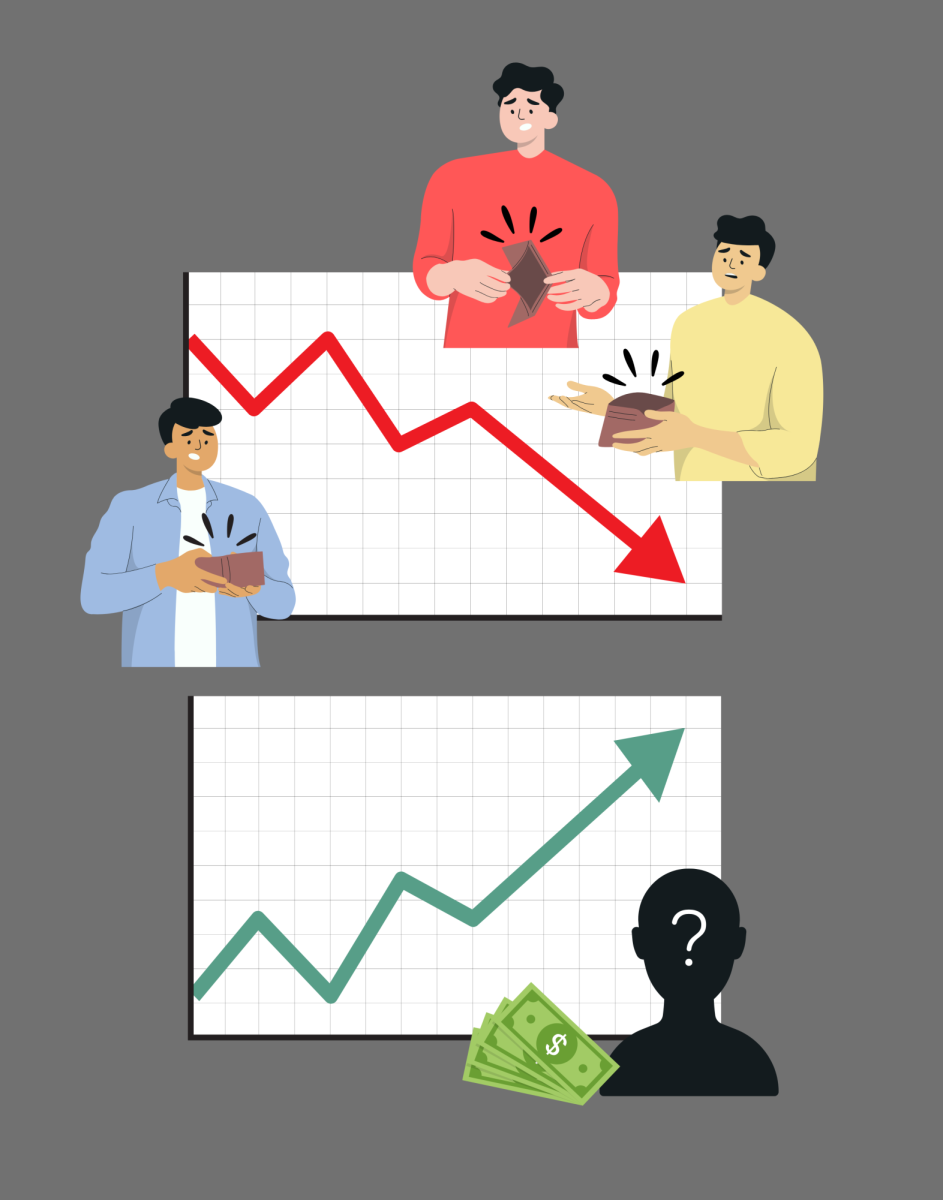
GRAPHIC: CARA HALLIGAN ’25/THE HAWK
The stock market is crashing, big companies are losing billions and the economy is slowing down. One of the biggest reasons behind the crash? Tariffs.
On President Donald Trump’s first day back in office, he announced a new round of tariffs. Within days, foreign governments responded with retaliatory tariffs, triggering a chain reaction that disrupted global supply chains and rattled investor confidence. According to the Organisation for Economic Co-operation and Development, these policies are likely to slow U.S. economic growth and raise consumer prices across the board.
Increased prices for everyday goods make it harder to afford essentials. Meanwhile, companies facing increased costs are cutting back on hiring, freezing internships and limiting new opportunities. For those preparing to enter the job market, this creates a more uncertain landscape.
It is also important to consider how these policies shape the broader economy we are inheriting. In theory, tariffs should protect domestic industries. However, they often raise costs for American businesses and limit access to foreign markets. Small businesses, which drive much of the innovation and job creation in America, are among the hardest hit.
The worst part is that much of this economic strain was avoidable. Experts warned about the consequences of aggressive tariffs. But the people in charge kept pushing the same narrative: Tariffs will help us win. Who’s really winning right now? It’s not the workers losing their jobs, the families watching their savings disappear or the small businesses struggling to stay afloat.
The question we must ask ourselves is: Who benefits from these policies, and at what cost?
Strong economies are built through cooperation, not isolation. In a globalized world, the ability to trade and collaborate with international partners is not just helpful — it’s essential. When the U.S. turns inward, it doesn’t just harm foreign competitors; it harms Americans who depend on stable markets and accessible goods.
Looking ahead, addressing inflation and creating job opportunities should be top priorities. That starts with policies rooted in long-term economic strategy, not short-term political wins. We must push for inclusive policies that recognize the realities of today’s interconnected world.